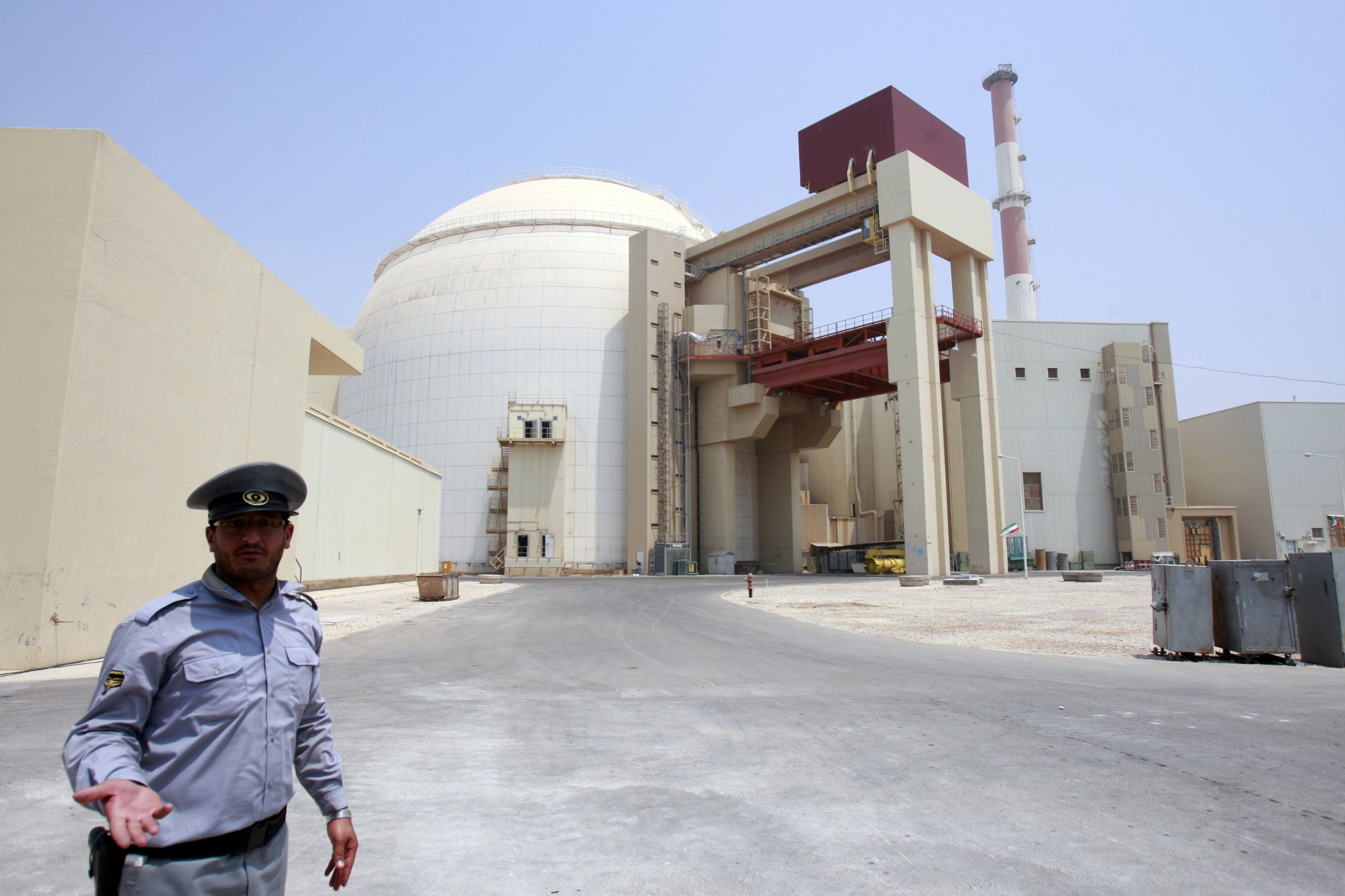
This article first appeared on the American Enterprise Institute site.
First, we learned last year that the Obama administration made a secret side deal with Iran that allowed the regime to effectively inspect itself—collecting its own soil samples, instead of International Atomic Energy Agency (IAEA) inspectors, at the Parchin military complex.
Then we learned last month that the Obama administration made a secret $400 million ransom payment to Iran, in which "wooden pallets stacked with euros, Swiss francs and other currencies were flown into Iran on an unmarked cargo plane" on the very same day that U.S. hostages were released.
Now it appears the Obama administration has cut yet another secret deal with Iran—this one allowing Iran to evade some of the restrictions on its nuclear program. Reuters reported:
The United States and its negotiating partners agreed "in secret" to allow Iran to evade some restrictions in last year's landmark nuclear agreement in order to meet the deadline for it to start getting relief from economic sanctions, according to a think tank report published on Thursday.
The report, which was released by the Washington-based Institute for Science and International Security, is based on information provided by several officials of governments involved in the negotiations. The group's president David Albright, a former U.N. weapons inspector and co-author of the report, declined to identify the officials, and Reuters could not independently verify the report's assertions.
"The exemptions or loopholes are happening in secret, and it appears that they favor Iran," Albright said.
You can read the full report here.
Why would the Obama administration agree to such exemptions? Perhaps because it feared that if it didn't the whole nuclear deal was in danger of unraveling.
Without the exemptions, Iran was going to be in violation of the nuclear deal on January 16—the first day it was implemented. If Iran was in violation on the first day, Iran would not have been able to receive more than $100 billion in sanctions relief. And if Iran did not get sanctions relief, the regime had made clear, there would be no deal.
Moreover, something else was happening on January 16. That was the day the administration sent the secret plane carrying a $400 million ransom to Tehran in exchange for the release of American hostages.
So no exemptions, no sanctions relief, no ransom payment, no hostage exchange—and perhaps even the entire Iran deal implodes.
Faced with this scenario, the Obama administration blinked and let Iran off the hook—because the appearance of Iranian compliance is far more important to it than actual compliance.
The Obama administration, in typical Orwellian fashion, tried to spin the story. White House spokesman Josh Earnest denied the report with this carefully crafted turn of phrase: "The argument that somehow this agreement was implemented before Iran came into compliance is just not true."
To which the Institute for Science and International Security responded on Twitter: "No. Earnest needs to read what we write. We said exemptions allowed Iran to be in compliance on Implementation Day."
And if that were not bad enough, the administration did it in secret. The public only found out about this because an independent group led by a former U.N. weapons inspector discovered the side deal and published a report breaking the news.
This is par for the course. We discovered the Obama administration's other secret deal on inspections only because two members of Congress, Representative Mike Pompeo and Senator Tom Cotton, happened to be in Vienna meeting with IAEA officials who slipped up and told them about the agreement.
Which raises a good question: If this Iran deal is so good, why is the administration doing all of this in secret?
The answer is simple: because it knows that allowing Iran to inspect itself, paying ransoms for hostages and watering down an already-weak agreement so Iran can remain in compliance and get its $100 billion in sanctions relief and $400 million ransom payment would not withstand public scrutiny.
Marc Thiessen is a fellow at the American Enterprise Institute.
Uncommon Knowledge
Newsweek is committed to challenging conventional wisdom and finding connections in the search for common ground.
Newsweek is committed to challenging conventional wisdom and finding connections in the search for common ground.
About the writer
To read how Newsweek uses AI as a newsroom tool, Click here.








